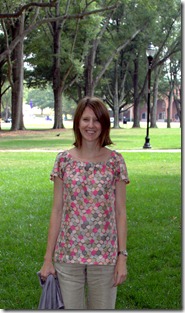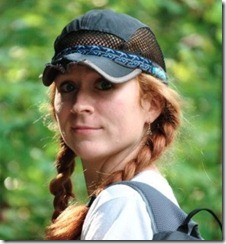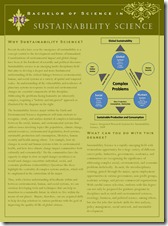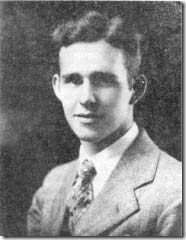 Photo to the left: Wilbur C. Holland circa 1930, founding father of the Carolina Geological Society.
Photo to the left: Wilbur C. Holland circa 1930, founding father of the Carolina Geological Society.
It was 75 years ago, in 1937, that Wilbur C. Holland, then Geology Professor at Furman University, founded the Carolina Geological Society (CGS) to create an active community of geologists in the area. The main purpose of the society is to promote the Geosciences, encourage the study of Earth Science, promote spirit of friendship and cooperation, and encourage research and publication. At the time of its founding, Holland envisioned a full day meeting with presentations of papers in a morning session and field trip in the afternoon. Currently, the meeting is held over three days, starting with a reception on the first evening, followed by a day and a half of field trips to various localities.
As a tribute to the 75th anniversary of CGS, Furman Earth and Environmental Sciences professors Dr. Bill Ranson, Dr. Jack Garihan, and Dr. Suresh Muthukrishnan conducted the meeting in Greenville. Field trips showcased the geology, geomorphology and landslide hazards in Upstate of South Carolina. A special celebration was held at the Table Rock State Park Pavilion on Saturday evening.
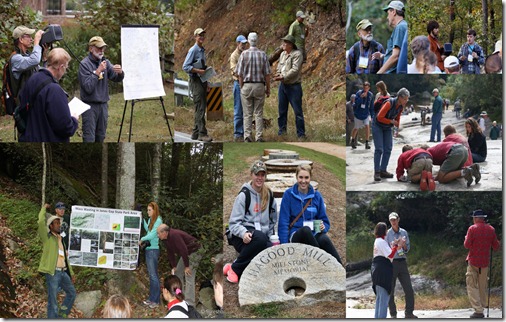
Students Brooks Bailey, Claire Campbell, Stephen Campbell, Katharine Compton, Elizabeth Johnston, and Ryan Richardson assisted the leaders during the planning stages and during the field trips, ensuring the safety of participants along congested roadways. Apart from these student assistants, 15 other Furman students attended the conference. A total of 156 total participants were present making it a successful event. The edited volume of the field guide in electronic format will be available from CGS website.

The department wishes to thank all the student assistants and especially Ms. Nina Anthony for their tireless efforts and help over the last several months. We also thank our recent graduate Jay Bridgeman (‘12) for leading a part of the field trip to the Salem ultramafic body on Saturday.
Click here for photos from Carolina Geological Society annual meeting, 12-14, October 2012, Greenville, South Carolina.




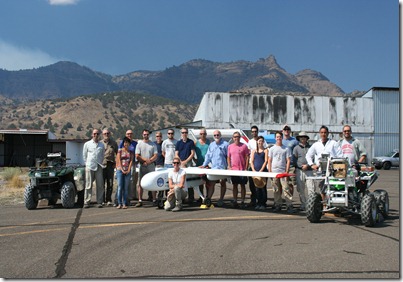
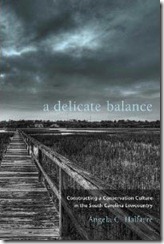
 Patrick Starr (Earth and Environmental Science and Political Science Major) and Wes Floyd (Sustainability Science Major) are among six students from three Universities that received fellowship from Piedmont Natural Gas Foundation to support and pursue real-world problem solving projects in collaboration with local communities and non-profit and government agencies.
Patrick Starr (Earth and Environmental Science and Political Science Major) and Wes Floyd (Sustainability Science Major) are among six students from three Universities that received fellowship from Piedmont Natural Gas Foundation to support and pursue real-world problem solving projects in collaboration with local communities and non-profit and government agencies. 